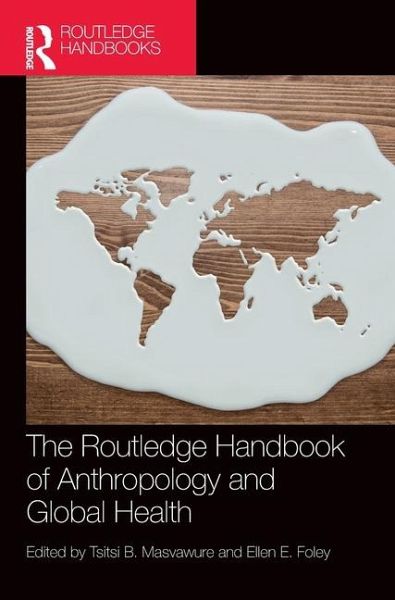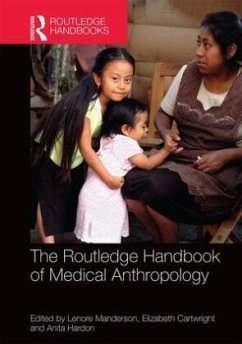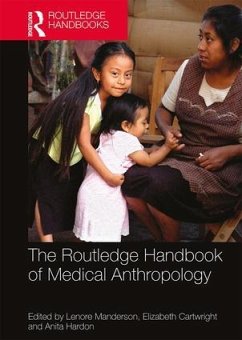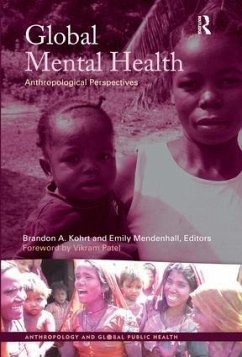
The Routledge Handbook of Anthropology and Global Health

PAYBACK Punkte
123 °P sammeln!
The Routledge Handbook of Anthropology and Global Health provides an overview of the complex relationship between anthropology and global health. The book brings together a diverse group of scholars who consider the intersection of anthropological concerns with health and disease as understood and intervened upon by the field of global health.The book is structured around five sections: (1) social, cultural, and political determinants of health; (2) knowledge production in anthropology and global health; (3) persistent invisibilities in global health; (4) reimagining a critical global health; ...
The Routledge Handbook of Anthropology and Global Health provides an overview of the complex relationship between anthropology and global health. The book brings together a diverse group of scholars who consider the intersection of anthropological concerns with health and disease as understood and intervened upon by the field of global health.
The book is structured around five sections: (1) social, cultural, and political determinants of health; (2) knowledge production in anthropology and global health; (3) persistent invisibilities in global health; (4) reimagining a critical global health; and (5) new horizons in anthropology and global health. Over these five themes a range of topics is explored, including:
rare diseasesmedical pluralismuniversal global health protocolsHIVhealth securityindigenous communities(non)communicable diseasesdecolonizing global health
The Routledge Handbook of Anthropology and Global Health is an essential resource for upper-level students and researchers in anthropology, global health, sociology, international development, health studies, and politics.
The book is structured around five sections: (1) social, cultural, and political determinants of health; (2) knowledge production in anthropology and global health; (3) persistent invisibilities in global health; (4) reimagining a critical global health; and (5) new horizons in anthropology and global health. Over these five themes a range of topics is explored, including:
rare diseasesmedical pluralismuniversal global health protocolsHIVhealth securityindigenous communities(non)communicable diseasesdecolonizing global health
The Routledge Handbook of Anthropology and Global Health is an essential resource for upper-level students and researchers in anthropology, global health, sociology, international development, health studies, and politics.














